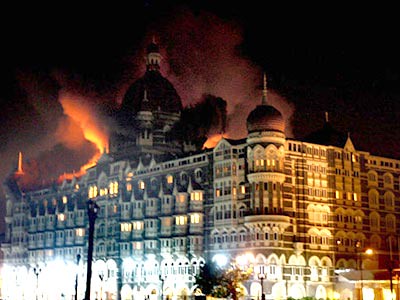UAPA 2019: Striking a Balance
September 14, 2019 | Expert Insights

Background
The UAPA 1967 was an enabling legal instrument to deal with unlawful activities and associations operating against national integrity and sovereignty. This law was enacted when the Naxalite movement was spreading and there were rebellions in the troubled North East of India.
Since then a host of other counter-terror laws have been enacted -National Security Act 1980 (NSA), Terrorist and Disruptive Activities (Prevention) Act 1985 (TADA) which was superseded by Prevention of Terrorism Act 2001 (POTA) and the National Investigation Agency Act of 2008 -2019 (Amendment).
Recently the UAPA 1967 was amended enabling law enforcement agencies to unilaterally declare an individual as a terrorist.
Analysis
The government of India has called the amendment consistent with similar global legal instruments necessary for waging the war on terror. India promptly named Masood Azhar, Zaki-ur-Rehman, Dawood Ibrahim and Hafiz Sayeed as terrorists under the new amendment to UAPA 1967. This was long overdue, as the US had done this much earlier.
Amendment to Schedule 4 of the UAPA will now allow the National Investigation Agency (NIA) to declare an individual suspected to have terror links as a terrorist and to investigate and seize property where required. Currently only organisations are designated as 'terrorist organisations' and not individuals.
The amended UAPA, has faced criticism with respect to what constitutes terrorism or who is a terrorist, as there is no clarity as to what exactly constitutes an act of terrorism. Section 35 of the Act, states that an individual or an organisation may be notified as a terrorist if the government “believes” them to be so. But simply stating that all acts committed under the scope of any of the treaties listed under the schedule of the Act, constitutes terrorism - makes the definition far too ambivalent.
The inability of world bodies to agree upon a universally accepted definition of terrorism shows the lack of consensus on this matter. The listing of Masood Azhar as designated terrorist in the UN Security council 1267 committee after much reluctance by China, shows the varying understanding of who is a terrorist. As the saying goes, “One man’s terrorist is another man’s freedom fighter”.
The Indian backed treaty, ‘Comprehensive Convention on International Terrorism’, which has still not been passed, pressed for an urgent need to define terrorism. The crux of this treaty was to make it mandatory for member states to support the prosecution or extradition of those designated as terrorists in a third country.
Counterpoint
The fact that the UAPA amendment targets individual rights, has been widely criticised as an intrusive inclusion to an already tough act. Human rights activists have termed it as draconian and self-serving and have sought its repeal by the Apex court.
The US government routinely affixes the word “terrorist” to an individual’s name and shares such information across networks such as airlines and cross border intelligence agencies. The individual is thus effectively barred from most travel, without any due legal process.
When an Individual is notified as a terrorist, without being given an opportunity to be heard, it also makes an individual susceptible to life-long social stigma even if they are subsequently de-notified. In fact, if arrested under the UAPA, he may spend a very long time in jail as an undertrial while the law enforcement agencies investigate the case at their own pace.
Assessment
- This Act could be misused for reasons other than national security. Unfettered prerogative to the state to designate any individual as a terrorist without following due processes of law is not in the spirit of a free and open democracy. It would rather be similar to functioning in a police state and therefore, safeguards against its potential misuse must be built into the Act.
- The definition of a terrorist must first be recognised universally so that it is not left to the discretion of a law enforcement officer to interpret it as per his/her wisdom or as per higher dictat. The definition must be within the purview of international laws to ensure global acceptance.
- The evolving spectrum of the 5thGeneration Warfare is constantly adding new dimensions to terrorism- cyber terrorism, drones, lone wolf attacks, biological attacks etc. The definition of a terrorist/act of terror must meet the requirements of the evolving situation.
- In order to designate a person as a terrorist, due legal process should be established by the UAPA act. If not, the act can be hijacked to suppress dissent. An individual should be able to defend his/her case before being designated as a terrorist in accordance to the principles of natural justice.
- Concerns of civil society must be duly taken into consideration while putting in place constitutionally approved checks and balances. It has been seen that abuse and misuse are inherent in many provisions that eliminate accountability.
Image Courtesy: flickr.com








Comments